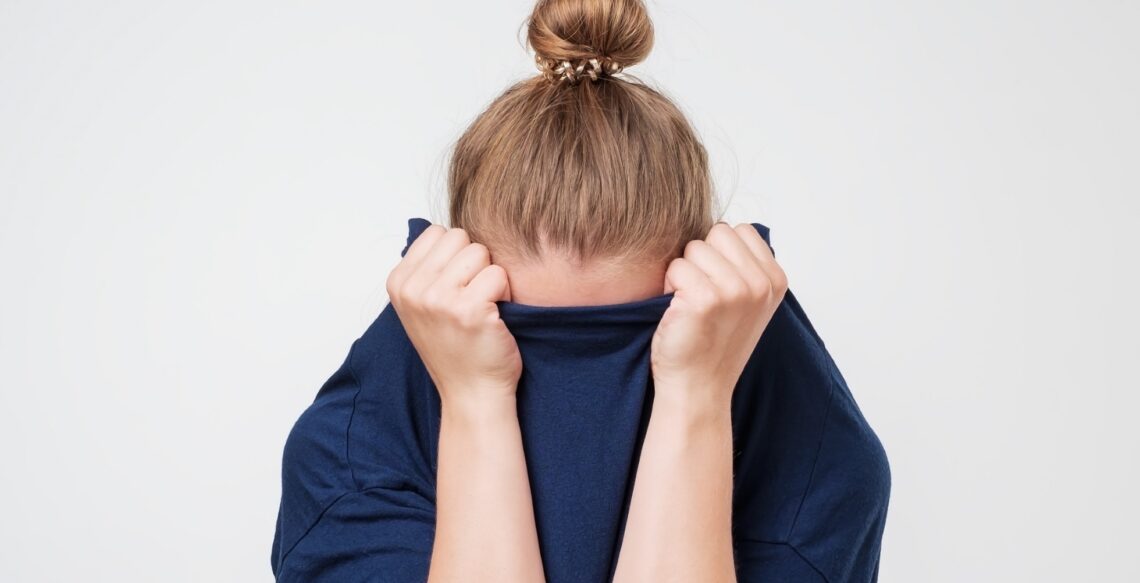
The Espio Center offers you the chance to overcome phobias and live again without fear and anxiety with the help of the most modern therapy method. Our team of highly trained specialists help patients suffering from various types of phobias, providing a comprehensive approach to treatment and support.
What is a phobia?
A phobia is an excessive and uncontrollable fear of specific objects, situations or phenomena. It can significantly limit your ability to lead a fulfilling life, affecting you physically and emotionally. Some phobias can reach the intensity of panic attacks, for example in an elevator as an exacerbation of claustrophobia - the fear of closed spaces.
People with a phobia may take drastic measures to avoid the object or situation entirely, and this impairs their quality of life. For example, a person with a fear of bees may avoid outdoor activities such as hiking or gardening. If such a person is unable to avoid these frightening objects or situations, he may experience severe anxiety and panic attacks when exposed to them.
What causes a phobia?
Although scientists cannot yet determine exactly why fears become phobias, there are many factors that contribute to the development of a phobia. Here are some examples:
– Past trauma related to a specific incident: Experiencing a traumatic situation at a young age can have a lasting impact on how you feel about it. For example, if you were bitten by a dog at a young age, you may develop a fear of all dogs.
– Genetics and learned reactions: Picking up habits and behavioral tendencies from parents or siblings is common, including fears and phobias they may develop. People with anxious parents may exhibit anxious behavior later in life.
– Social reactions to fear or panic. Showing fear or panic that is met with negative reactions from others can make a person feel embarrassed about expressing the behavior and lead to more anxiety due to fear that it will happen again.
Although phobias can arise due to a wide variety of factors, their symptoms can be very different. The following types of phobias are distinguished:
– Spatial phobias associated with staying or moving in any space:
- fear of heights (acrophobia)
- fear of open spaces (agarophobia)
- fear of water spaces (aquaphobia)
- fear of closed spaces (claustrophobia)
- fear of being in transport, etc.
– Social phobias are associated with being in the company of other people and interacting with them:
- fear of public speaking
- fear of acting in public (for example, talking to your boss or girlfriend),
- fear of blushing or doing something “indecent”
- fear of intimate relationships, etc.
– Phobias of living beings:
- fear of spiders (arachnophobia)
- fear of mice or rats
- fear of snakes
- fear of insects (such as bees)
- fear of dogs, etc.
– Phobias related to health and medicine:
- fear of illness (nosophobia)
- fear of microorganisms, bacteria, viruses
- fear of the sight of blood (hemophobia)
- fear of injections
- fear of dentists or dental procedures (dentophobia)
- fear of harming yourself or loved ones;
- obsessive fear of death (thanatophobia).
– Specific (isolated) phobias – this group gives its own name to each of the obsessive fears.
The main method of treating phobias at the Expio center is memory reconsolidation blockade - this is the latest method based on research in the field of psychology and neurobiology. This method allows you to rewire your brain so that it stops associating traumatic events and phobias with negative emotions and reactions. After this, you will be able to perceive past events more calmly and rationally. Unlike most phobia treatments that rely on exposure (habituation to the feared factor over many sessions), PRP allows healing, usually in one or two sessions. Learn more...
Our experienced doctors conduct a detailed analysis of your condition and the factors that contribute to the development of phobias. We carefully review your symptoms and history to make the correct diagnosis and choose the best treatment option.
Since we develop an individual approach to the treatment of phobias, taking into account the characteristics of each patient, the following may also be added to the treatment of phobias:
– Psychotherapy: Trained psychotherapists use a variety of treatments, including cognitive behavioral therapy, emotional imagery therapy and other approaches, to help you overcome your phobia.
– Medication: In cases where the phobia is accompanied by severe panic attacks or other physical symptoms, we may consider medication to relieve symptoms.
– Support and Counseling: We are available to provide psychological support and counseling at every stage of your treatment, including post-treatment support and guidance to ensure stability and prevent relapse.
We are here to support you and help you overcome the barriers that a phobia creates.
Start your journey to a healthy life today!
